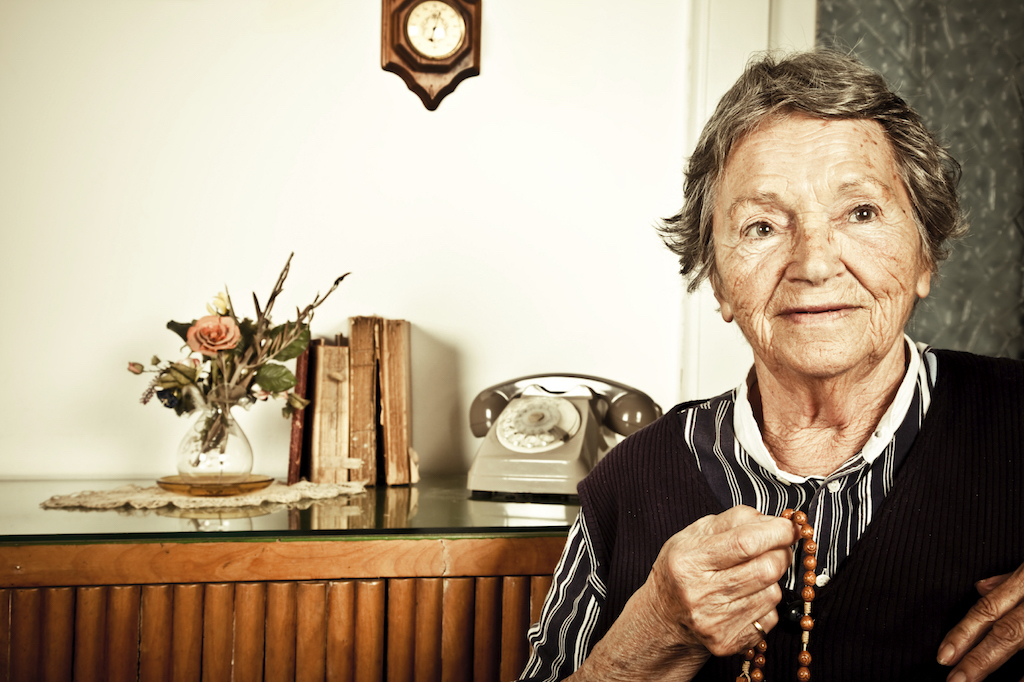TODAY’S ADVENT REFLECTION FOR THE 4TH MONDAY OF ADVENT, 2016
Today’s readings have a theme: brokenness and blessing. In the first reading, from Judges, the wife of Manoah is barren. Barrenness (infertility) during this time was often seen as a punishment from God for a transgression. This transgression need not be the woman’s; it could be a family member. However, Manoah’s wife has a vision from an angel and is told she will have a son. The son is Samson, who becomes the last of the judges of the Jewish people.
Then, in the Gospel, we have the priest Zechariah and his wife Elizabeth. They are known to be holy and upright people, but have never conceived a child. They have grown old waiting and hoping. Then, Zechariah is chosen to enter the sanctuary of the temple (something only priests could do.) He too has a vision of an angel and is told his wife will bear a child. Zechariah gets a little feisty over this, and questions the angel: “We are old! How in the world will we have a baby??” Well, it happens, and the child is conceived. Unfortunately for Zechariah, his questioning is received poorly by God and Zechariah is struck mute.
For anyone who has struggled with infertility, the brokenness of the situation is harsh. It seems as if everyone you know is having a baby. People ask, “When are you going to start a family?” It hurts to walk through a store and see moms and dads pushing carts with babies, cooing and laughing as they do their shopping. And after a while, you start asking God, “Why me? Why us? We are good people! We’d make good parents! Why are you doing this to us??”
Then there is poor Zechariah. He’s been a good servant to God his entire life, but when a profound vision and blessing are given to him, his first reaction is not to believe. Who can blame him? Most of us would likely react in the same way. His disbelief costs him his voice (which returns when his son is born.)
We all are broken. We sin. We suffer. Sometimes, it seems as if all we do is suffer: the roof is leaking, the car is out of commission, bills upon bills pour in. Or maybe the suffering is physical: the effects of chemotherapy or a diagnosis of a chronic illness. Many families suffer because of the addiction of one of their members: a son or daughter, sister or brother who is an alcoholic or drug addict. The readings today beg the question, “Hey, God! Where are you???”
The Japanese have a term called wabi sabi. The Japanese believe that things that are broken not only have value, but beauty. A vase that is cracked has the cracks sealed, perhaps with a gold sealant. A kimono that is torn is patched with a bit of gorgeous fabric. The brokenness becomes not a distraction but an enhancement, making what was broken lovelier and pleasing.
Yes, we are all broken. We suffer and sin. We muddle our way through days limping and coughing. We are burdened with bills and blindness. We wonder where God is in all this mess.
In both the readings today, we have couples who are broken. They are devoted to God, but wonder where He is. What they don’t know is that God is preparing them for huge blessings. How were Zechariah and Elizabeth to know that God was preparing them for a son who would be the precursor to Jesus? How were they to know that their brokenness would give birth to the man who acclaimed, “There is the Lamb of God!”?
Today, spend some time looking at the brokenness you have in your life. Keep in mind that idea of wabi sabi. Where has God mended the brokenness in ways you could not have imagined? Where are the blessings you might never have had if not for the brokenness? Yes, our lives are filled with brokenness, but God always provides blessings as well.
[Throughout the 2016 Advent season, we will be bringing you posts from a variety of writers. Our hope is that each of these will be a meaningful way for you to slow down, pray well, and prepare for the coming of our Lord. Today’s blogger is Elise Hilton, who regularly writes the“Living the Good News” blog for Diocesan Trinity Publications. Hilton is a writer, speaker and former educator, who now serves in the Marketing & Communications Department for Diocesan Trinity Publications. She is also an avid reader, wife, mom of five and passionate about music.]


